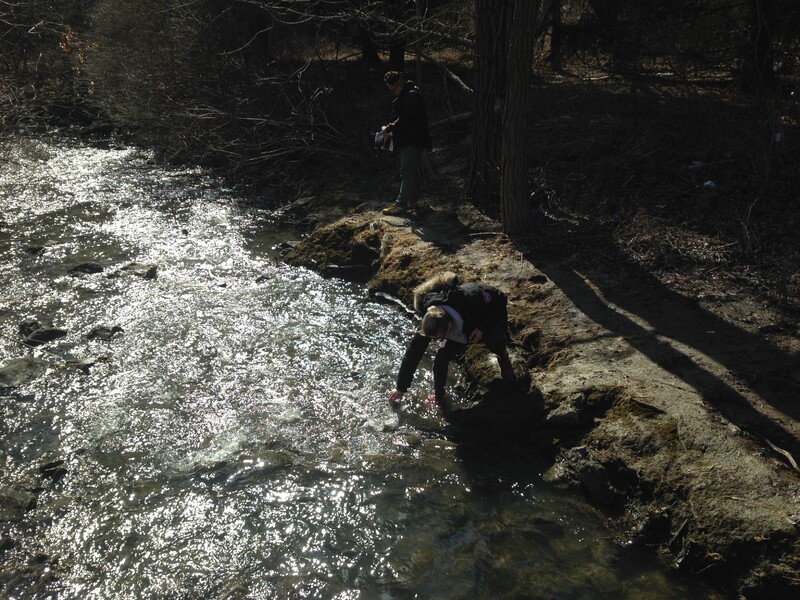
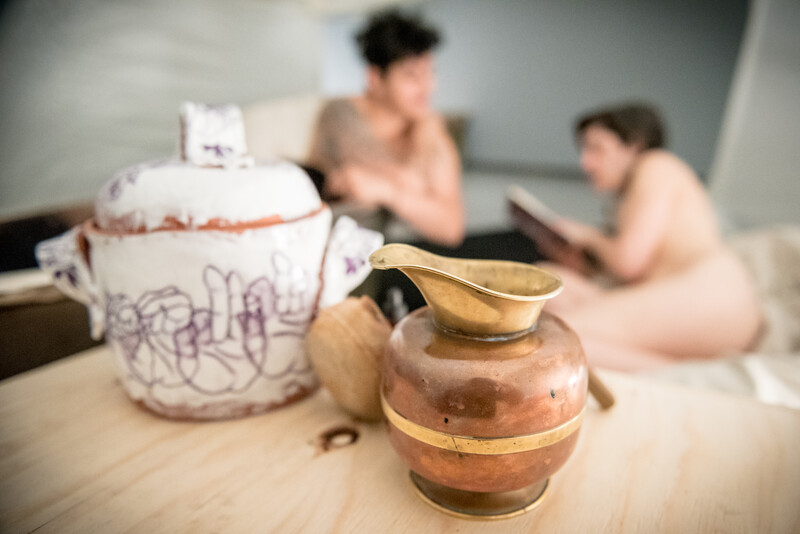
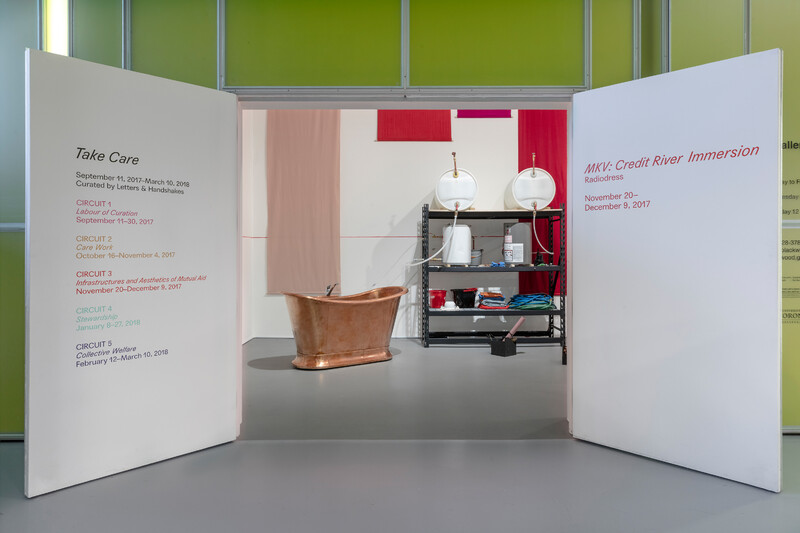
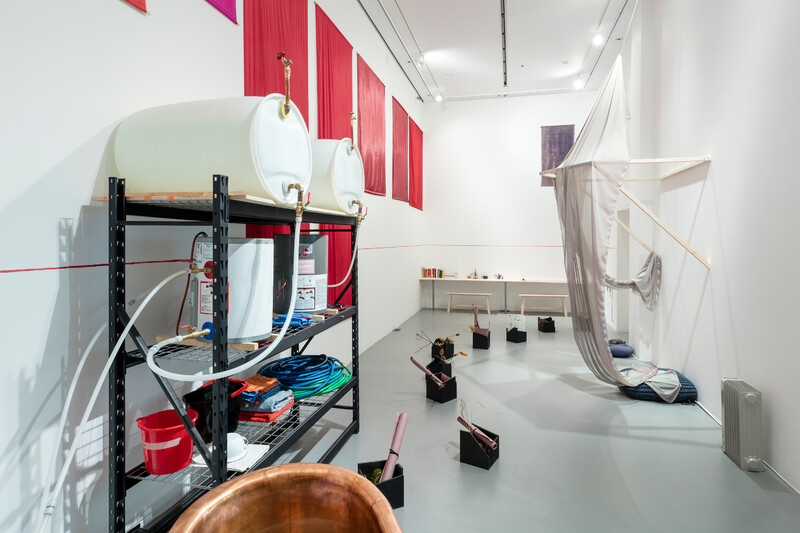
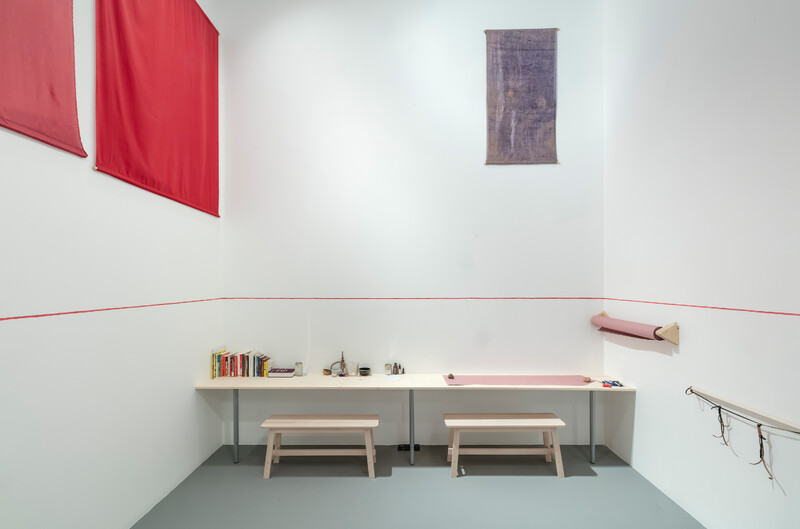
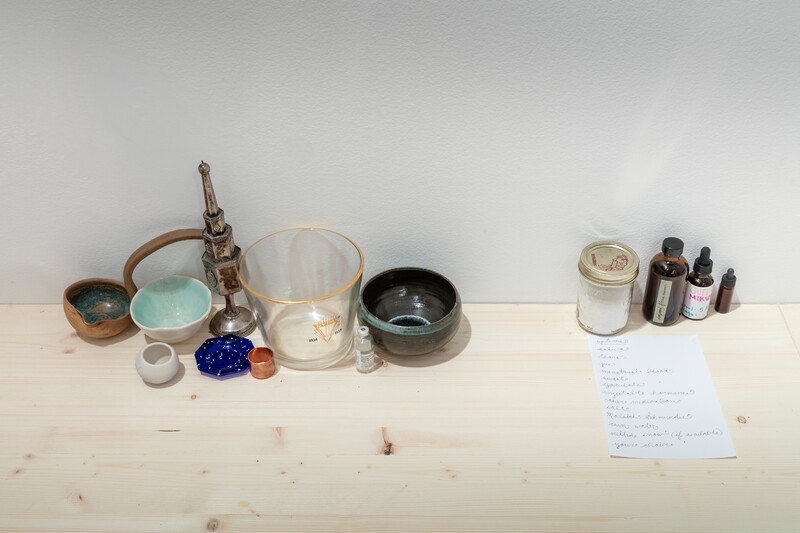
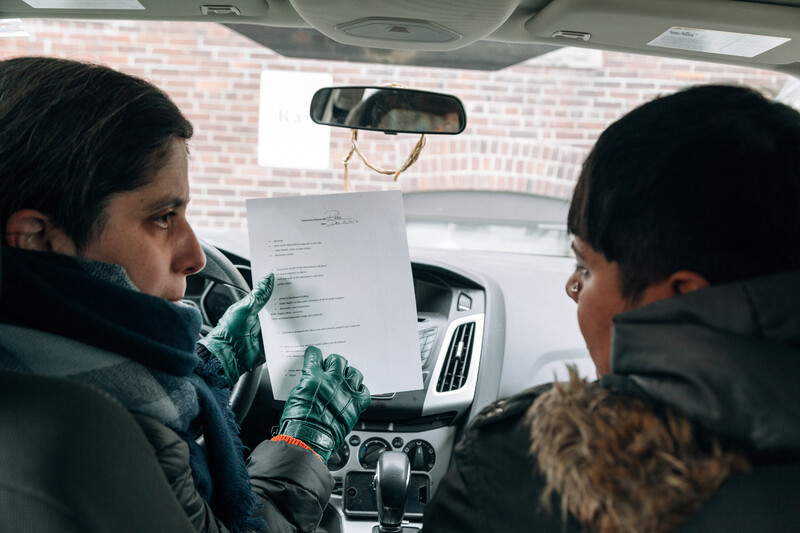
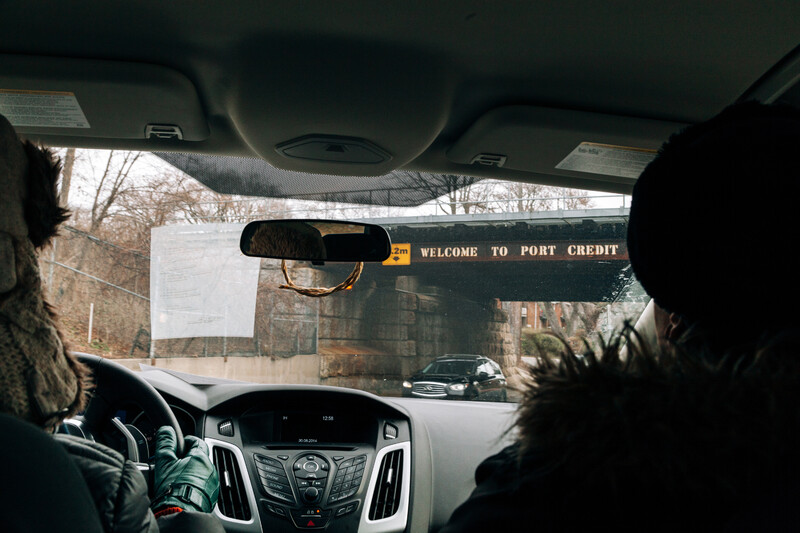
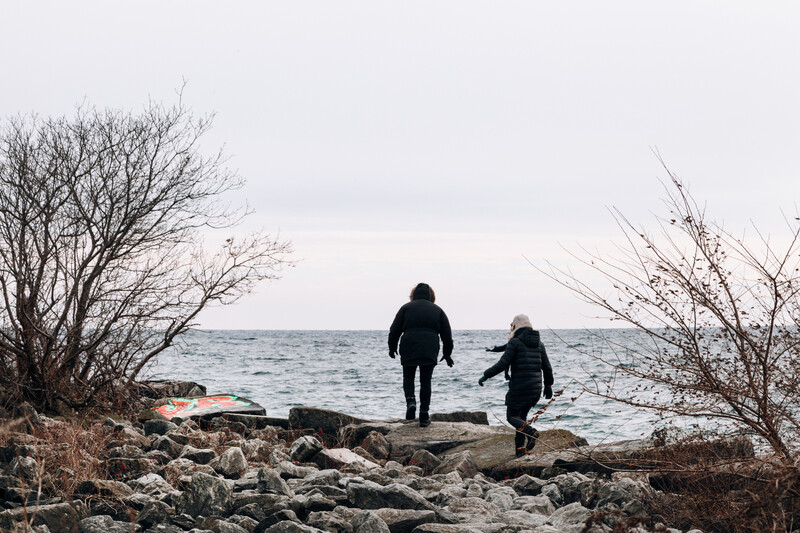
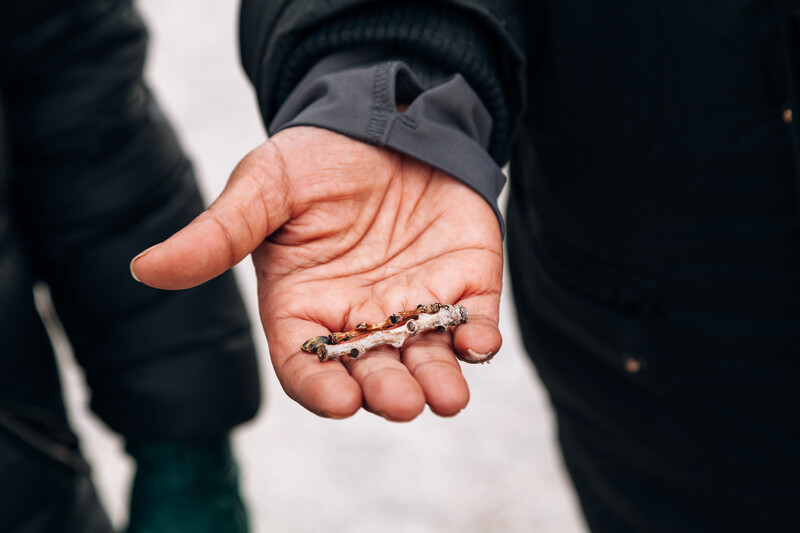
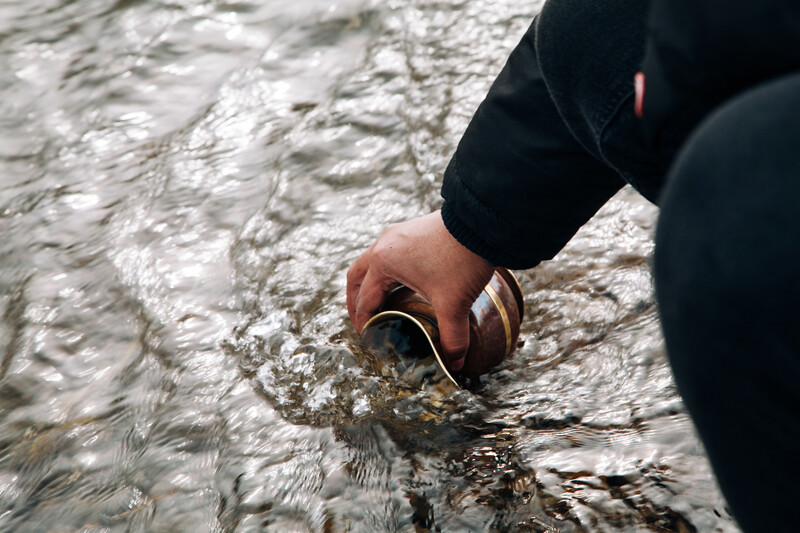
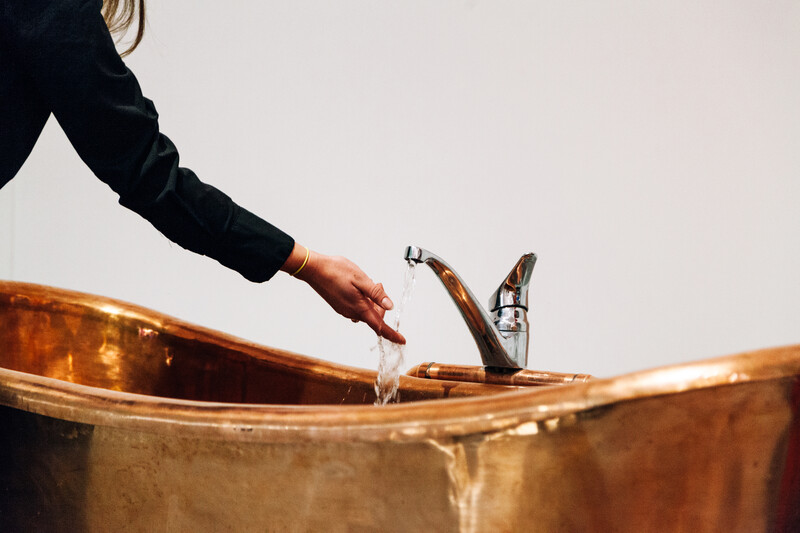
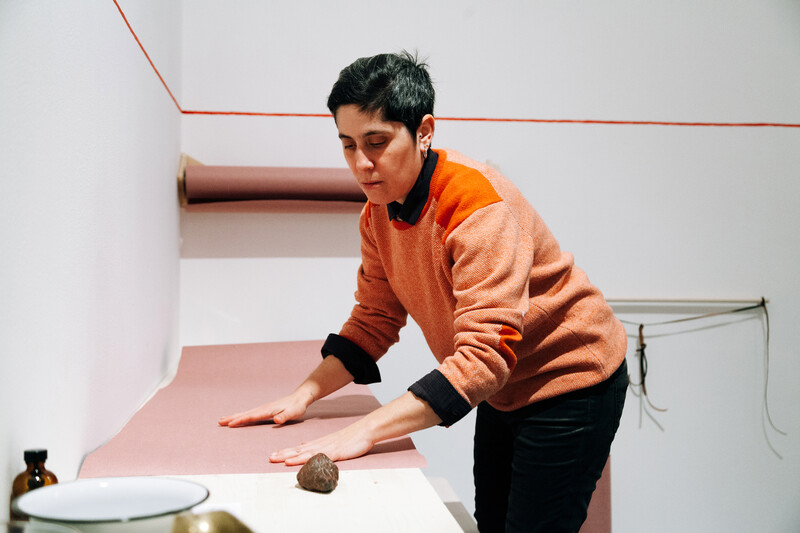
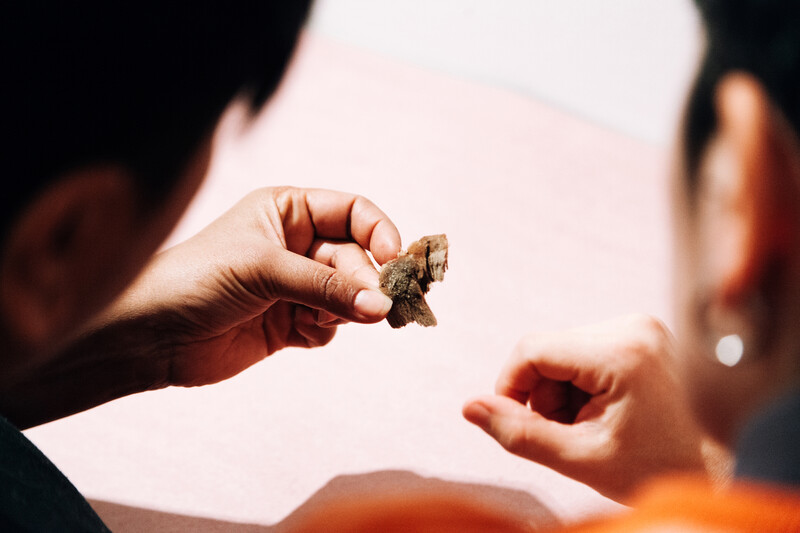
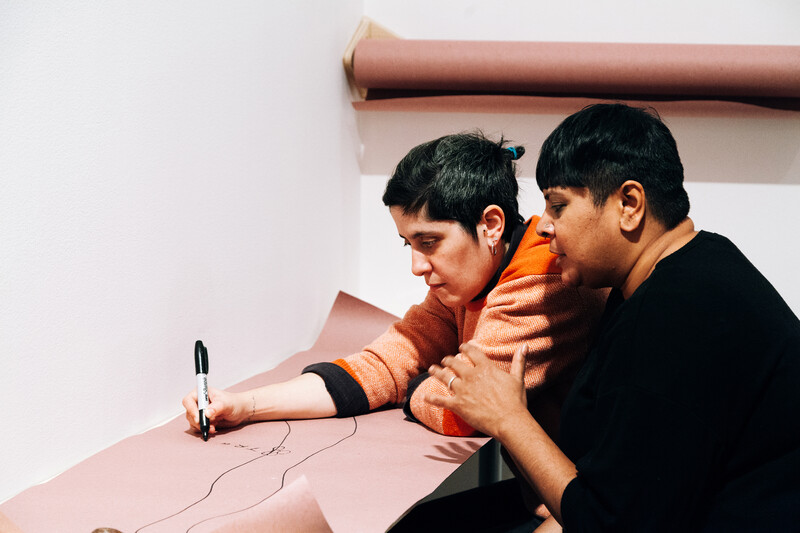
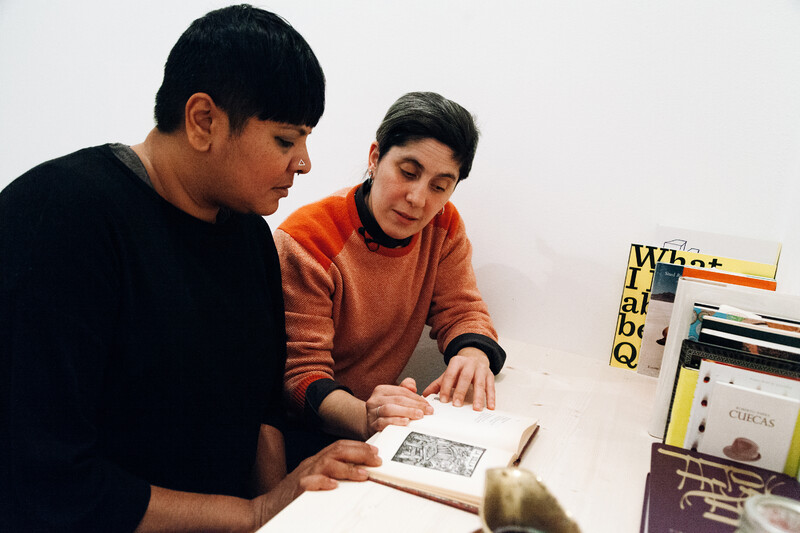
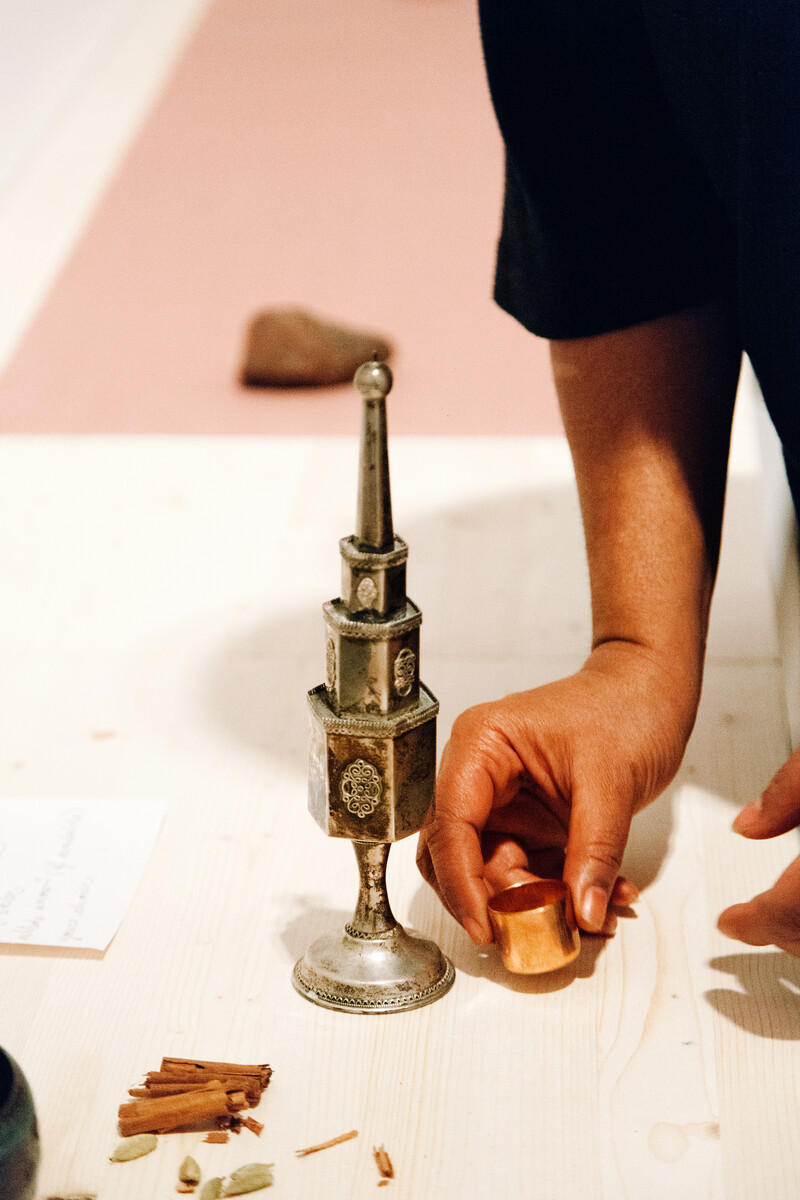
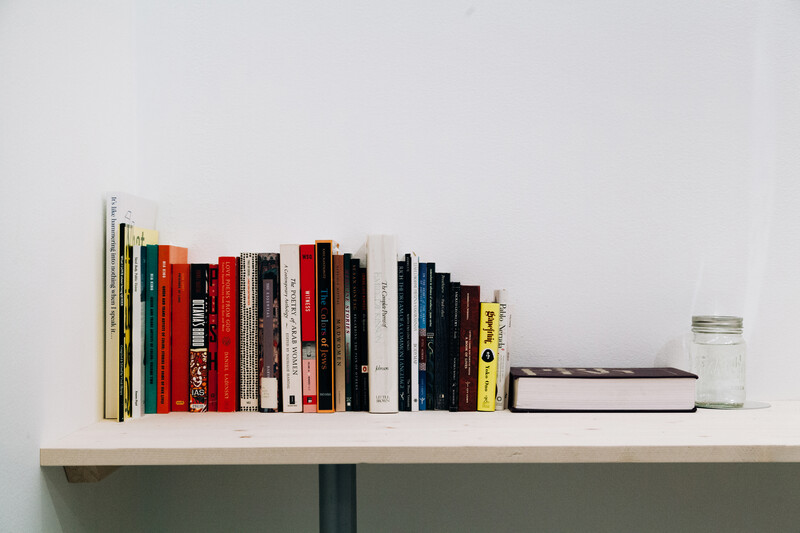
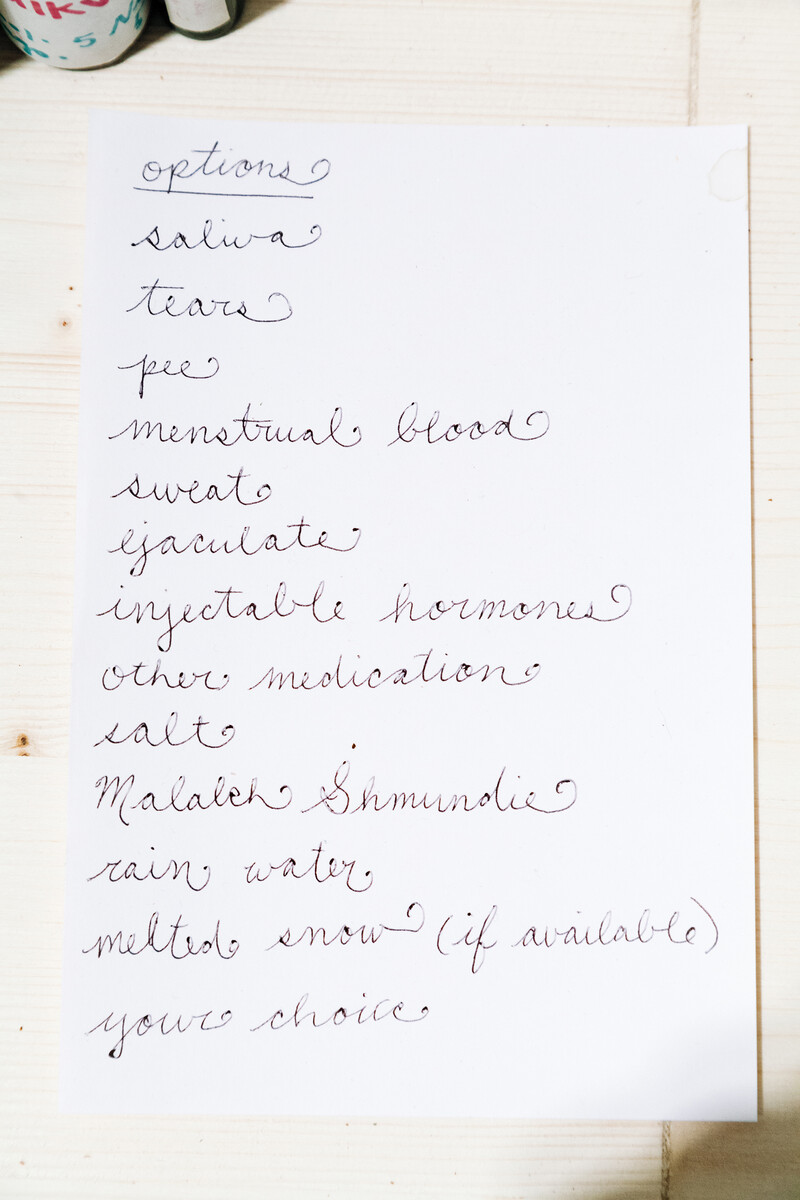
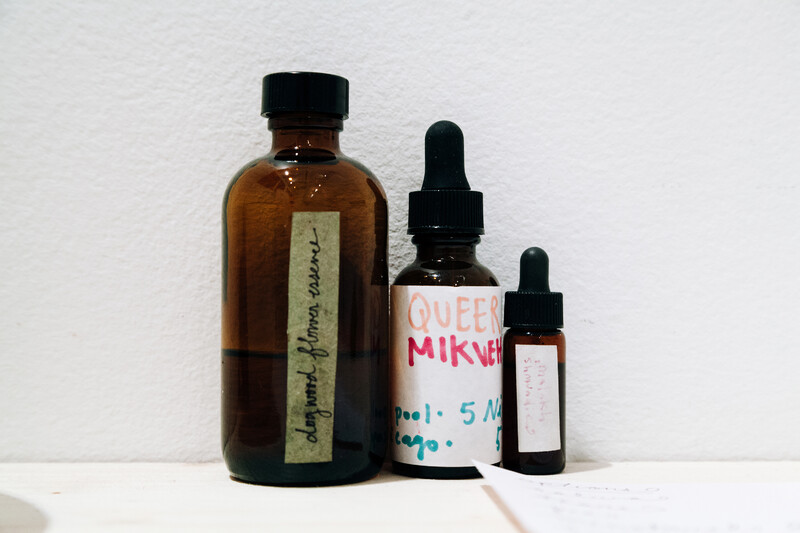
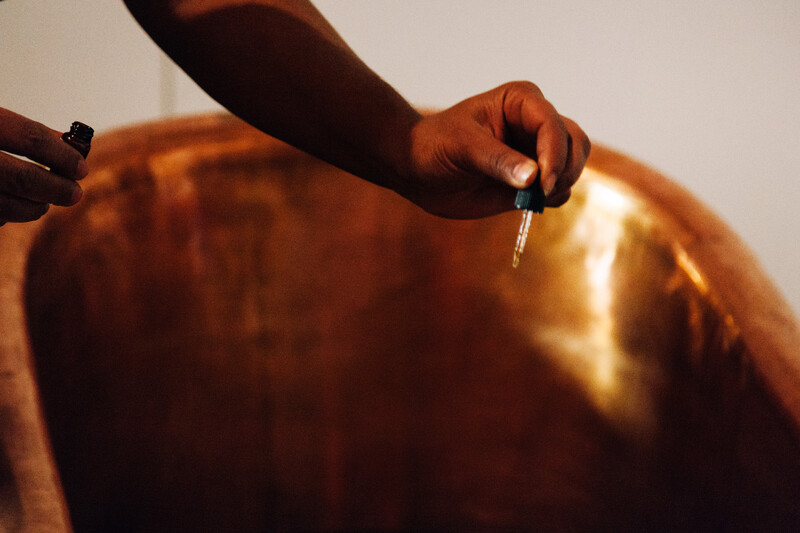
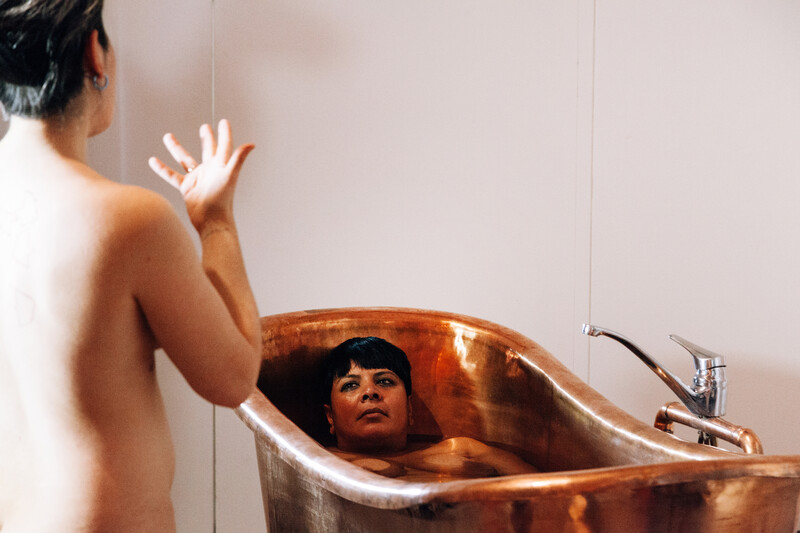
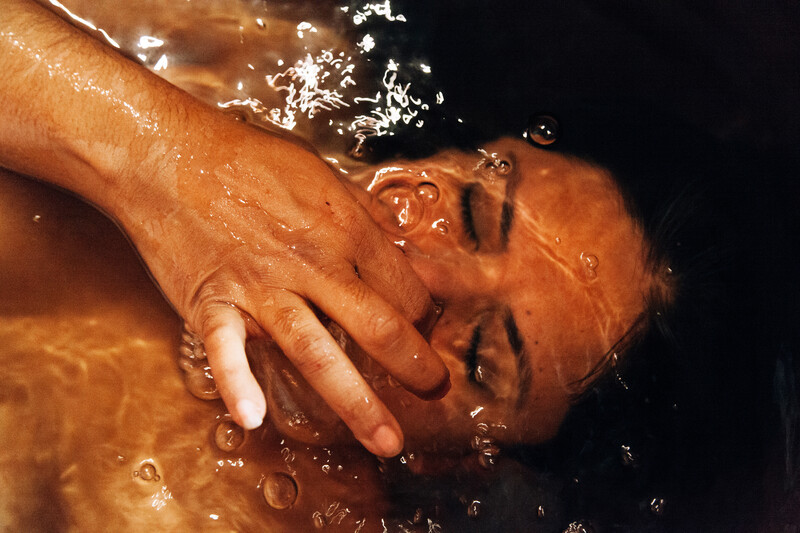
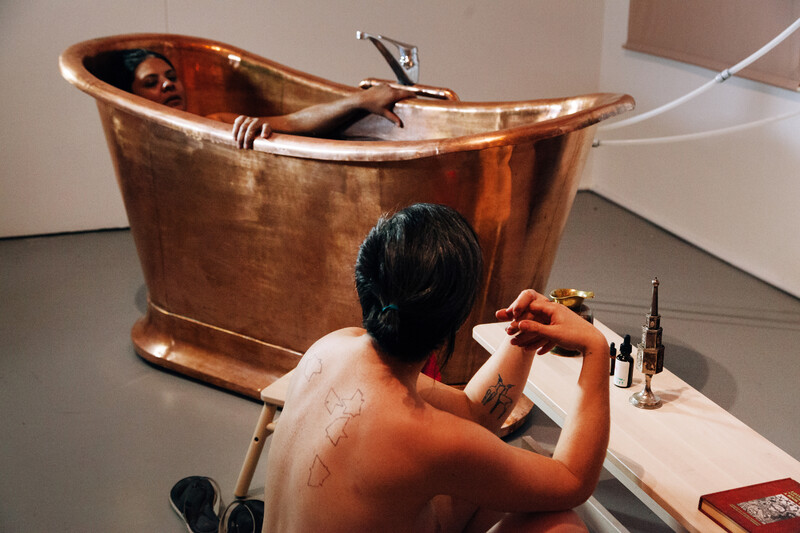
MKV: Credit River Immersion
As part of Radiodress’s ongoing research around the queer body as a material site of resonance and empathy, MKV: Credit River Immersion acknowledges the physical toll that social justice work, migration, and climate change takes on marginalized bodies. Basing MKV upon the Jewish ritual bath ceremony of mikvah, the artist queers the traditional process, leaning towards an embodied and multi-dimensional spirituality. Traditionally, the mikvah bather is naked and immersed in water that comes from a natural source. The Shomeret, or guide, sits beside them and offers prayers suited to the purpose of their immersion. MKV: Credit River Immersion incorporates a localized awareness of the colonial footprint on our local water sources, and, in line with the mikvah tradition, some of the water is gathered from melted snow or rain around the gallery site.
During each immersion, Radiodress and MKV participants connect with the waters of the nearby Credit River, outline their goals for the ceremony, and select the materials with which they wish to immerse themselves (with possibilities including saliva, tears, pee, menstrual blood, sweat, ejaculate, injectable hormones, medications, salt, rain water, snow, or other bodily fluids of their choice). Ultimately, each participant takes a private bath, in the gallery space, while Radiodress offers specific words to guide their attention towards healing and transition. Together, they decide how Radiodress’s presence as a guide will be manifest—either in person, in the gallery, or remotely, through radio communication. During the ceremony, participants reflect upon a personal change (including working through gender transitions, dealing with questions of fertility, or coping with the struggles of aging, illness, and death).
MKV: Credit River Immersion is part of a larger project within the Jewish world to re-inscribe the often misunderstood and patriarchal practice of the mikvah ceremony. Here Radiodress is curious about the ways in which critical queer and trans Jews both change and evolve Jewish traditions and play a role in proposals for human interconnection, or “inter-being,” a term taken up in Buddhist and mindfulness practices. Radiodress is interested in how non-normative bodies can offer alternatives to homonationalist impulses—impulses that subject LGBTQ2S people to the usual violence of capitalism, colonialism, and militarism.
Through participatory artworks in public space, Radiodress asks how erased and invisible knowledge(s) might inform a new era of social governance, with queer and trans people at the forefront of this change. Working with what Sara Ahmed describes as “queer orientations,” Radiodress explores how private and public performance can shift the ways in which performers and audiences stand, sit, lie, and exist in space with others, including the spatial and temporal experience of being underwater. MKV: Credit River Immersion offers a comforting and transformative marker of shifting circumstances for queer- and trans-identified people, while suggesting that “queer orientations” have much to offer civic life.

The Blackwood
University of Toronto Mississauga
3359 Mississauga Road
Mississauga, ON L5L 1C6
[email protected]
(905) 828-3789
The galleries are currently closed.
Facebook | Twitter | Instagram
Sign up to receive our newsletter.
The Blackwood is situated on the Territory of the Mississaugas of the Credit, Seneca, and Huron-Wendat.